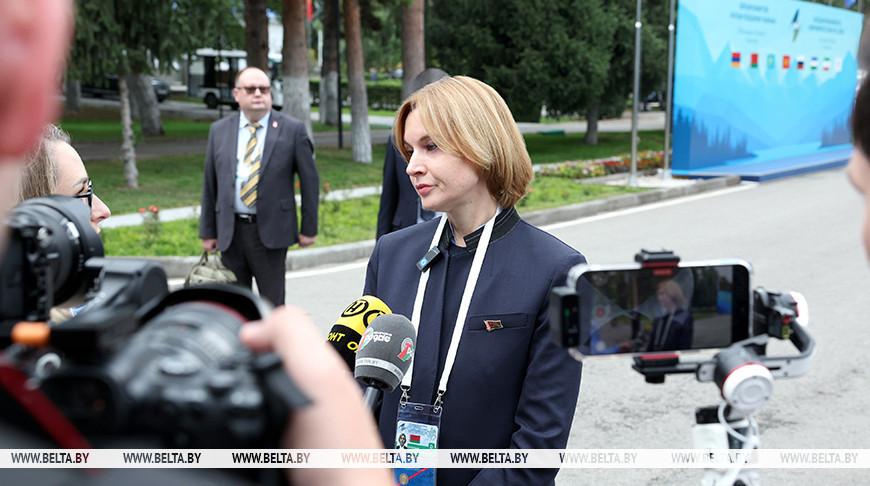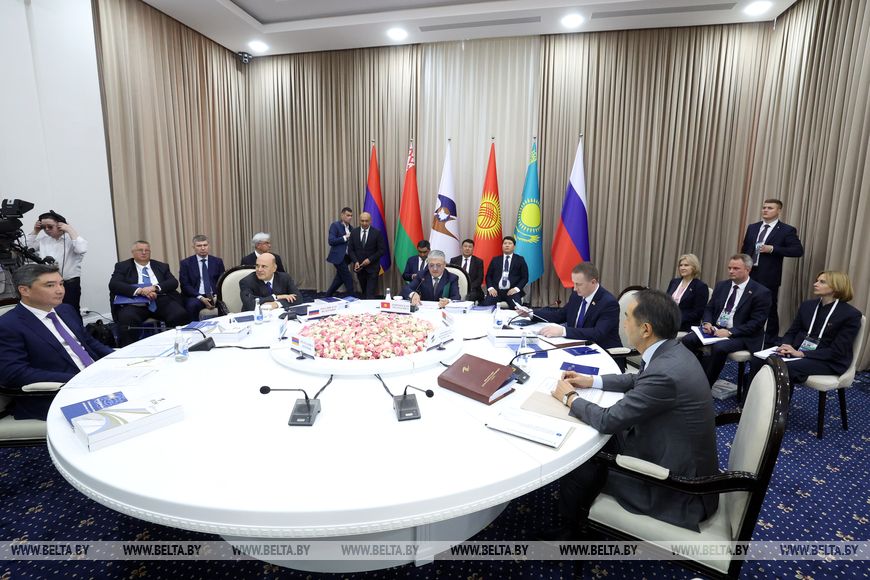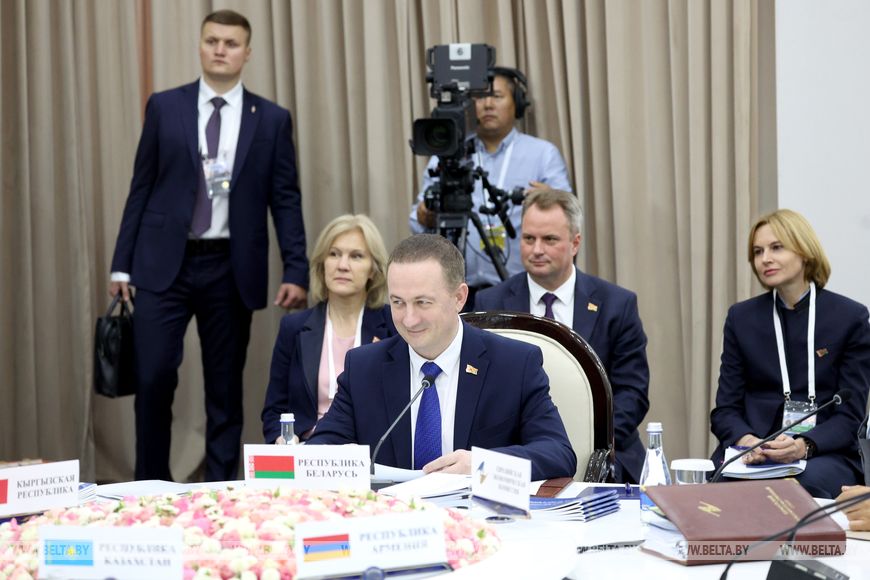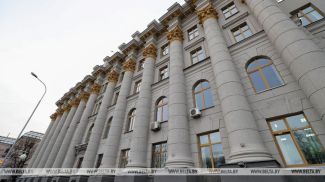
MINSK, 14 August (BelTA) – In the Eurasian Economic Union matters typically undergo extensive deliberation before final decisions are reached, Belarusian Deputy Prime Minister Natalya Petkevich told journalists after the restricted-format meeting of the Eurasian Intergovernmental Council (EEC) in Cholpon-Ata, Kyrgyzstan, BelTA learned.
The approval process is multi-tiered, she said. First expert-level working groups conduct technical evaluations, then the EEC Council reviews proposals. Unresolved issues are submitted to heads of government or state. "However," she added, "some matters are resolved very quickly.”
The deputy prime minister noted that four agenda items were debated during the restricted-format Eurasian Intergovernmental Council meeting. “In the final hour, we achieved an unexpected consensus on an issue that had remained unresolved for nearly a year. Decision was adopted without further debate thanks to a mutually acceptable compromise.”
In any unified economic space or integration bloc, the core principle is compromise. “This isn’t always feasible – political will may be lacking, or domestic stakeholders might resist. Certain internal factions inevitably complicate the effort to weave these competing interests into a workable consensus."
The Eurasian Intergovernmental Council will hold an expanded-format meeting on 15 August. Belarusian delegation led by Prime Minister Aleksandr Turchin arrived in Kyrgyzstan for the summit. The session's agenda features 20 items.

The heads of government of the Eurasian Economic Union member states are expected to discuss the approval of a program to promote exchange trading on the common exchange (organized) commodity market, amendments to the action plan to implement the coordinated (harmonized) transport policy in the EAEU for 2024-2026, as well as the concept for developing common markets for medicines and medical devices. In addition to that, the heads of the delegations are set to meet with Kyrgyzstan’s President Sadyr Japarov.
The approval process is multi-tiered, she said. First expert-level working groups conduct technical evaluations, then the EEC Council reviews proposals. Unresolved issues are submitted to heads of government or state. "However," she added, "some matters are resolved very quickly.”

The deputy prime minister noted that four agenda items were debated during the restricted-format Eurasian Intergovernmental Council meeting. “In the final hour, we achieved an unexpected consensus on an issue that had remained unresolved for nearly a year. Decision was adopted without further debate thanks to a mutually acceptable compromise.”
In any unified economic space or integration bloc, the core principle is compromise. “This isn’t always feasible – political will may be lacking, or domestic stakeholders might resist. Certain internal factions inevitably complicate the effort to weave these competing interests into a workable consensus."
The Eurasian Intergovernmental Council will hold an expanded-format meeting on 15 August. Belarusian delegation led by Prime Minister Aleksandr Turchin arrived in Kyrgyzstan for the summit. The session's agenda features 20 items.

The heads of government of the Eurasian Economic Union member states are expected to discuss the approval of a program to promote exchange trading on the common exchange (organized) commodity market, amendments to the action plan to implement the coordinated (harmonized) transport policy in the EAEU for 2024-2026, as well as the concept for developing common markets for medicines and medical devices. In addition to that, the heads of the delegations are set to meet with Kyrgyzstan’s President Sadyr Japarov.













